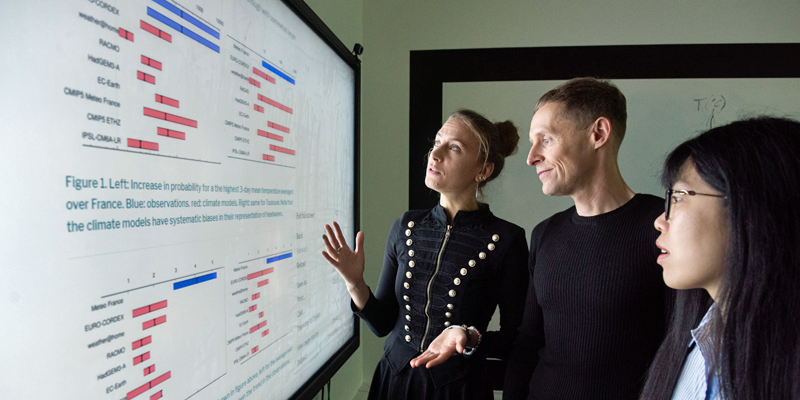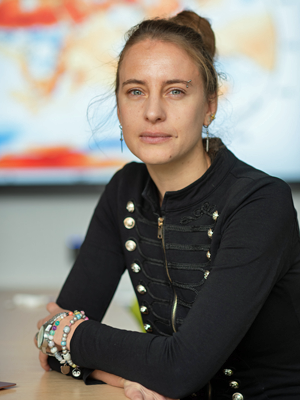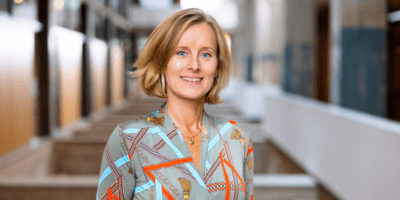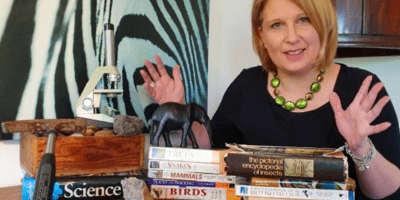Dr Friederike Otto is a Senior Lecturer in Climate Science at the Grantham Institute for Climate Change and the Environment, one of Imperial College’s six hubs for research, innovation and influence on global challenges. Her main research interest is on extreme weather events such as droughts, heat waves and storms, and understanding whether and to what extent these are made more likely or intense due to climate change. In December 2021 she was recognised by the British Science Association for her outstanding contribution to engagement and communication on the topic of climate science, sustainability and the environment, and was awarded a prestigious Honorary Fellowship.

“Who ‘does science’ is a hugely important issue, so if climate change is worked on exclusively by white men, it means that the questions asked are those that are relevant to white men.”
From physics to philosophy to extreme weather
I’m a physicist by training. I then did my doctorate in philosophy. It was only afterwards that I started to work on climate and climate science. Now I’m actually working a lot with social scientists, lawyers, so I feel like I’m slowly covering all the disciplines.
Much of work is writing, at least at the moment. What scientists do is to publish scientific papers, so articles in academic journals. I also write columns for newspapers, or op-eds (a newspaper page opposite the editorial page, devoted to personal comment), or I write proposals for funding.
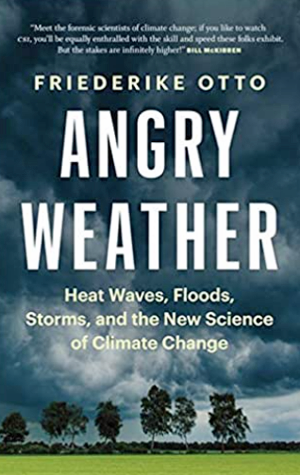
The other big part of my job is talking, talking to colleagues and to students about how we interpret all this data that we have analysed and what it tells us. What other experiments and what other analysis could we do? I also spend a lot of time talking to journalists about questions they have (or should have) about extreme weather.
Impact of COVID-19
The biggest impact COVID has had on me is that it has cut me off from meeting my colleagues. Before the pandemic, I would very regularly go to conferences and workshops around the world and meet with colleagues to discuss science face to face. We would come up with new ideas, new collaborations and new projects.
Everything has moved online now, which has had a big impact on who I work with, because it’s been a lot easier to meet colleagues who are in Europe now, but suddenly New Zealand and the US are very far away again, as are colleagues in South Africa and India.
The pandemic never impacted different countries more at different times. So, when we were locked down and had lots of restrictions, other people often didn’t. But then other things in India, for example, people couldn’t bring their kids to the nursery for months on end, so they had huge trouble working. Yes, so national borders became ‘a thing’ again, and that, I think, is very detrimental for inclusive research.
And of course, with the people I already know it’s possible to keep things going online, but especially for the younger generation, my students, but also the students of my colleagues around the world, they don’t meet other people so they can’t really build networks. And that’s very bad.
It’s been incredibly stressful for my students and postdocs, and also had a huge impact on their mental health, the isolation and limitation of what work they could do. For me personally, it’s fine, because I’m an established researcher. I live in a house that has a proper desk so I can work from home, and I have all my networks. But for all the younger people I’m working with, it’s been extremely hard.
Progress toward net-zero CO2 emissions at COP 26
There were huge expectations for COP26. People were hoping it would achieve strong commitments on net-zero greenhouse gas emissions by sometime in the not-too-distant future. (We need net-zero CO2 emissions by 2050, globally, to have a chance of reaching the Paris Agreement temperature targets). So, there were expectations that countries would deliver on these targets.
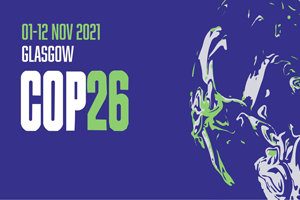
Apart from mitigation and adaptation, there is a third pillar, loss and damage, which requires first of all a recognition that climate change is already happening here and now and it’s not something that will happen somewhere else and in the future. So, there are losses and damages arising from climate change already that we failed to mitigate against and failed to adapt to.
Those most vulnerable to climate change impacts are those least responsible for the causes of climate change, and they are the ones who are currently paying for these losses and damages, so a recognition of that, and also financial help to deal with loss and damages was an expectation of COP26. This was the case especially for the least developed countries, small island states and so on, who were really pushing for that agenda.
So those were the expectations. The outcome of COP was that on the mitigation side (so on the promises towards net zero), it was a big success. Firstly, because a lot of countries have pledged to reach net-zero towards the middle of the century.
One big technical piece of work that was left over from several COP events before was how to make sure that the accounting of who is actually cutting emissions is on sound regulatory feet. That had not been agreed on in the last COP or the one before that. But it has finally been agreed now so there are less loopholes and double counting, so the accounting for the mitigation efforts of countries was one of the successful parts.
One of the parts that was not successful was securing the $100 billion for developing countries. Loss and damage were there up until the very last minute but in the final declaration financial aid was not agreed so it was just basically postponed until the next COP, COP27, which takes place in November in Egypt.
I think that shows that whilst there has been a lot of progress in the last two years that climate change is now something that everyone is talking about. It is an important topic for all CEOs and so on, but it’s still the case that it’s talked about as a future problem. It’s frustrating that climate justice is just seen as intergenerational justice, but it’s not recognised that climate justice has a strong international component.
British Science Association Honorary Fellowship
It’s a huge honour to be an Honorary Fellow of the British Science Association, because it recognises people who are talking about science and bringing science into the public arena, outside of the ivory towers of academia. It means a lot to be able to help people’s understanding of scientific issues. It has been a big motivation for the science I’m doing to achieve that and to be recognised for that is very cool.
International Day of Women and Girls in Science
It is really important that we not only celebrate International Day of Women and Girls in Science, but also that we raise the awareness that there are still way too few women and girls in STEM subjects so.
Climate science is a bad example for that as well. Last year, Reuters published what they call the Hot List of Climate Scientists, where they rank the 1000 most important climate scientists in the world, and of those 1000 they had 122 women. And in the first 100, there were two women.
That doesn’t mean of course that there are no women in climate science. There are actually quite a lot of women in climate science, but many of the women in the sector are coming from the social sciences, which notoriously get ranked badly in the scientific rankings because they are all based on very quantitative measures. It’s much easier to rank STEM subjects and so the underrepresentation in science itself gets more visibility.
Science is not just about white men
Who ‘does science’ is a hugely important issue, so if climate change is worked on exclusively by white men, it means that the questions asked are those that are relevant to white men. But people most affected by climate change are not white men, so if all these other people are effectively excluded from the scientific process, the problems we have to face in climate change will not be properly addressed and you will not find solutions for how to best transform a society.
We need to change this, and it doesn’t change by just saying we need to change it. It needs to be everyone’s responsibility to change it, and this is what we need to highlight on days like the 11th of February.
The science skills shortage
One of the most important things to help is that we have more diverse people working on these problems, because the biggest bottleneck for my work is the human capacities. There are just not enough people who can do the kind of research that we need to do to answer questions like: How does climate change alter extreme weather? How does that interact with vulnerability?
Encouraging people to go into science and to work on these issues is one of the most important things people can do to help. The other thing is to educate people about how science works, because very often people think that science is somehow neutral, or objective, or impartial, or whatever.
Demonstrating how science actually works
We also need to show people that science is something that is a process undertaken by people. People think that geniuses, like Einstein, come up with a solution and then that’s it, but that’s not how science works.
Science is a process, and it’s a process that becomes scientific by making hypotheses that are testable, and by putting your ideas to the test, and it’s your peers that are testing that. So, by testing and finding slightly different ways to do the same thing over and over again, you come from an idea to a fact.
This is a process and therefore it is only science if it’s clear what your assumptions are, what the hypothesis is, and what your data is. The scientific result might look very similar to something that a think tank dreams up or an NGO, but the process is very different. That’s what makes one thing science and the other not.
If we don’t know that, then we can’t disentangle facts from so-called ‘alternative facts’. We don’t really learn in school how science works and what the scientific method is and that is something that we need to change.
Taking World Weather Attribution to the next stage
One of the things that I’m really looking forward to is the big project that I’ve been working on for years, called World Weather Attribution, which I set up with a colleague in 2015, and have been running since to try to answer the question: “What is the role of climate change in an extreme weather event?” when these events are happening.
The project has not been funded for a long time, but I now have some funding for that project. I have a new postdoc who will start working with me on that in February, and there’s also funding for another postdoc. This means I will start to have a real team of people whose job it will be to work on this project, and that’s very exciting.
Main image credit: © John Cairns

